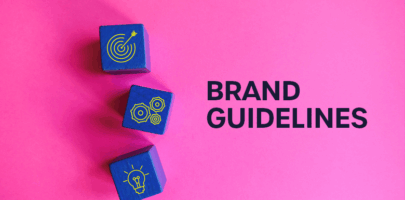- Introduction to Insurance Agency Marketing
- The Core Pillars of an Effective Insurance Marketing Strategy
- Four Key Marketing Strategies for Insurance Agencies
- Attracting Top Talent: Insurance Agents and New Clients
- Measuring Success in Insurance Marketing
- Elevate Your Insurance Agency Marketing Strategy With MarcomCentral
Get news, updates, and insights delivered straight to your inbox.
Insurance Marketing Strategies

Crafting a successful insurance agency marketing strategy is essential for organizations looking to thrive in a competitive and saturated industry. Unfortunately, many agencies simply don’t know where to start when revamping their marketing efforts, and the result can be lost opportunities with potential customers and slow or even negative growth.
The good news is that you can still turn the tide for your insurance business, even if its existing marketing mix is producing underwhelming results. Take a closer look at how you can create a winning insurance agency marketing strategy to effectively accelerate your growth.
Introduction to Insurance Agency Marketing
Whether you are creating your first insurance agency marketing strategy or simply need some fresh ideas to achieve better results, it’s beneficial to revisit the basics. With that in mind, here’s a deeper dive into the purpose and implications of having a solid marketing strategy.
Purpose of Marketing for Insurance Agencies
Marketing is the backbone of growth for your insurance agency. It’s how you connect with your target audience and win over potential clients. Without a good strategy, agencies can find themselves spinning their wheels or throwing money down the drain via unsustainable pay-per-click (PPC) campaigns.
A cohesive strategy brings focus to outreach efforts. It helps insurance companies unify their channels and tactics to promote better brand awareness and form meaningful relationships with members of their target market.
Why a Solid Marketing Strategy Is Critical
A well-rounded insurance agency marketing strategy aids you in attracting and retaining clients while scaling. Essentially, the right strategy strengthens relationships with policyholders and positions your agency as a trusted partner.
Insurance marketing campaigns are about much more than just blasting potential clients with ads. You need to showcase client-focused insurance policies, share testimonials, and encourage your audience to connect with you via a strong call-to-action. Without a clear plan, agencies risk losing current clients while struggling to find new ones.
Key Questions for Effective Insurance Agency Marketing
Before you start picking apart your existing strategy, it’s important to acknowledge industry-wide and agency-specific obstacles you are facing. Key questions to consider include:
- How can you reach local clients effectively?
- What makes your agency unique?
- How will you differentiate your agency in a saturated market?
- What are your unique value propositions?
Once you know what you are up against, you can build a cohesive plan to address each of these challenges, which is vital to effectively market insurance products.
The Core Pillars of an Effective Insurance Marketing Strategy
Your insurance agency marketing strategy needs to be tailored around the unique hurdles and goals of your business. However, every winning strategy is propped up by some foundational pillars. If just a single component is missing, your plan may have gaps that lead to missed opportunities. With that in mind, make sure your strategy addresses all of the following:
Customer-Centric Products
Think about how you can customize policies to meet the needs of your target audience. Identify what makes your agency’s offerings stand out from the competition.
For example, agents could send prospective clients screen-sharing app recordings as they review each policy option. This approach allows clients to rewatch clips and focus on aspects of the presentation that are most relevant to them.
Recording these videos takes about the same amount of time as calling a customer on the phone and explaining their policy options. It won’t be any more work for your agents, but it will be much more convenient for your clients.
Optimized Pricing Strategy
When insurance rates are rising across the board, it may be difficult to compete on price alone. Instead, focus on delivering value through superior service, bundling options, contracting with additional insurers, and providing detailed recommendations to your customers.
It’s important to note that you can still offer discounts through bundling or by encouraging clients to pay policies in six-month or 12-month increments. When you balance competitive pricing with value-based service, you can appeal to both cost-sensitive and quality-focused customers.
Leveraging Online Presence (SEO and Local SEO)
The most effective marketing strategies make search engine optimization (SEO) a foundational component. SEO and local SEO help you source high-quality leads that are looking for the specific insurance products you offer.
For example, local businesses that rank for keywords like “life insurance” or “insurance services” may be able to obtain more consistent traffic from nearby leads. Connecting with your local community promotes longevity and steady growth.
Integrated Digital Marketing
The best digital marketing strategies are integrated, meaning your channels work together to achieve your growth goals. You can’t treat SEO, email, and social media platforms like isolated resources. While each has different strengths and weaknesses, all of them need to be included in your strategy.
Storytelling is a particularly effective way to bring all of your channels together. For example, you can host free webinars to educate your audience about different types of insurance.
Use your in-house agents as hosts, which humanizes your brand. Then, share snippets of your webinar on LinkedIn and other social platforms to generate intrigue. Offer free access to the webinars in exchange for prospects’ contact information.
Adopting tools built for the insurance industry is crucial for addressing this pillar. Integrated customer relationship management (CRM) solutions allow you to manage campaigns across multiple channels, track your progress, and implement targeted improvements.
They also streamline campaign management so that you can spend more time interacting with customers and less time composing emails or performing other tedious manual work.
Relationship Building
No amount of fresh insurance marketing ideas will lead to success unless you are building genuine relationships. After all, helping people protect their livelihoods, health, and assets is what it’s all about.
Make sure that your desire to be of service is evident in your marketing materials. Nurture relationships with regular follow-ups and personalized messaging. Always lead with value before trying to sell.
A CRM platform can be a game-changer for relationship building. It helps you organize contacts based on their stage — including new customers, existing customers, and leads — and deliver targeted messaging. The result is more timely, relevant, and personalized connections.
Process Optimization and Automation
Executing your insurance agency marketing strategy means automating as much as possible. Streamlining your marketing workflows prevents your team from getting bogged down manually with sending lead-nurturing emails or monitoring the status of every lead. Many of these processes can be automated to save time and reduce the risk of oversights.
Through automation, you can improve the timing of marketing content and connect with your audience when they are most receptive to outreach efforts. This requires choosing the appropriate timing so that you don’t inundate people with messaging while also ensuring they haven’t forgotten about you or your offer.
Trust and Credibility
Today’s consumers can spot an ad a mile away. Many consumers will instantly throw up their guards if the content is coming from a brand that they don’t already trust. The good news is that you can maneuver past these defenses by using online reviews and testimonials from satisfied customers.
Positive reviews are social proof that your agency has delivered favorable outcomes for past or existing clients. When prospects see what you’ve done for others in similar situations, they may be more open to exploring your services.
Four Key Marketing Strategies for Insurance Agencies
Now that you know what elements your marketing plan needs to include, it’s time to consider how you can drive meaningful results for your agency. Here are four key strategies to explore:
1. Content Marketing for Lead Generation and Retention
Content is still king across all marketing channels. Providing your audience with engaging blogs, infographics, and videos will help you deliver value and educate them on relevant topics. Video marketing can be particularly effective for drawing people in on social media platforms. However, written content is still important, especially for your SEO strategies.
Optimize your content for search engines to rank higher and connect with people searching for answers. The key is to choose specific keywords that are organic and relevant to the topic you are trying to rank for. However, don’t resort to stuffing. Use your target phrases in a natural way for the best results.
2. Social Media Marketing for Engagement and Lead Conversion
LinkedIn is ideal for networking with leads and agents. Share industry insights to attract potential clients and talent.
Facebook and Instagram are excellent platforms for targeting specific demographics. The advertising tools provide you with tight control over who you target, how much you spend, and how long your campaigns last. They also offer detailed breakdowns of your reach and impact, allowing you to build on your success and fix shortcomings that may be hindering your results.
3. Email Marketing for Client Retention and Acquisition
Segmented email lists are great for nurturing new business opportunities and retaining existing clients. It’s all about staying connected to customers during every stage of their journeys. You want them to think of your business any time they have a question or want to inquire about a new policy.
There are plenty of ways to stay connected. Sending birthday alerts is a simple example. You can also use email to notify clients about savings opportunities or encourage them to renew their policies. The goal is to remind your audience that your agents are there to assist them and are continuously working to provide better value.
4. Referral Programs to Drive Growth
Creating a referral incentive system can transform existing customers into powerful advocates for your agency. A well-structured referral program gives your customers a financial incentive when their friends and family sign up for a policy via your agency.
To make a referral program that thrives, you need to integrate it into your existing CRM. That way, you can track and encourage referrals from current customers by using automated follow-up tools.
Attracting Top Talent: Insurance Agents and New Clients
Your insurance agency marketing strategy isn’t just about nurturing customers; it’s also about attracting top agents and new clients. You can make it happen with the right approach.
Recruiting Skilled Insurance Agents
Many of the online channels you use to connect with customers are also useful for attracting new agents. Social media platforms like LinkedIn can increase your visibility among potential new hires. You can also partner with third-party recruitment agencies to attract applicants, highlighting a strong work culture of career development opportunities and incentives.
Building a Strong Brand for Client Attraction
Your brand image is what differentiates you from other insurance agencies. You need a consistent and appealing brand image that is recognizable and trustworthy for both clients and agents. Everything from your logo to the tone of your content needs to be aligned. When people see your content, you want them to immediately recognize it and experience positive sentiments.
Craft authentic messages that resonate emotionally. Talk about how you help clients protect their loved ones and livelihoods via comprehensive policies.
Measuring Success in Insurance Marketing
Once you implement an insurance agency marketing strategy, you need a way to measure your success. Key performance indicators (KPIs) provide pieces of the puzzle. When you combine several interconnected metrics, you can better understand what’s going well, what’s not, and how to improve.
Evaluating Key Performance Metrics
Choosing the right KPIs can sometimes be a challenge. Customer retention and lifetime value are a few cornerstone metrics to start with. They help you understand the long-term success of your marketing efforts.
Conversion rate optimization data allows you to measure and improve conversion rates from each marketing channel. Identify the baseline for each channel as it relates to your industry. Compare these averages to your CRO and strive to match or beat the industry standard.
Adapting to Market Shifts
The best marketing strategies are fluid. They adjust based on customer feedback and market trends. As an insurance agency, your business must keep up with evolving regulatory changes and ensure compliance as well. While you undoubtedly monitor the market already, it’s important to look at it in the context of your marketing strategy, too.
Elevate Your Insurance Agency Marketing Strategy With MarcomCentral
A winning marketing strategy focuses on the customer’s needs and delivering value through targeted content. By leveraging these key concepts, you can attract clients and agents while establishing your business as a trustworthy agency.
MarcomCentral’s insurance solutions streamline these efforts. The intuitive platform’s customizable digital asset management capabilities allow you to create, distribute, and manage marketing resources at scale.
Request a demo today!
You might also like


